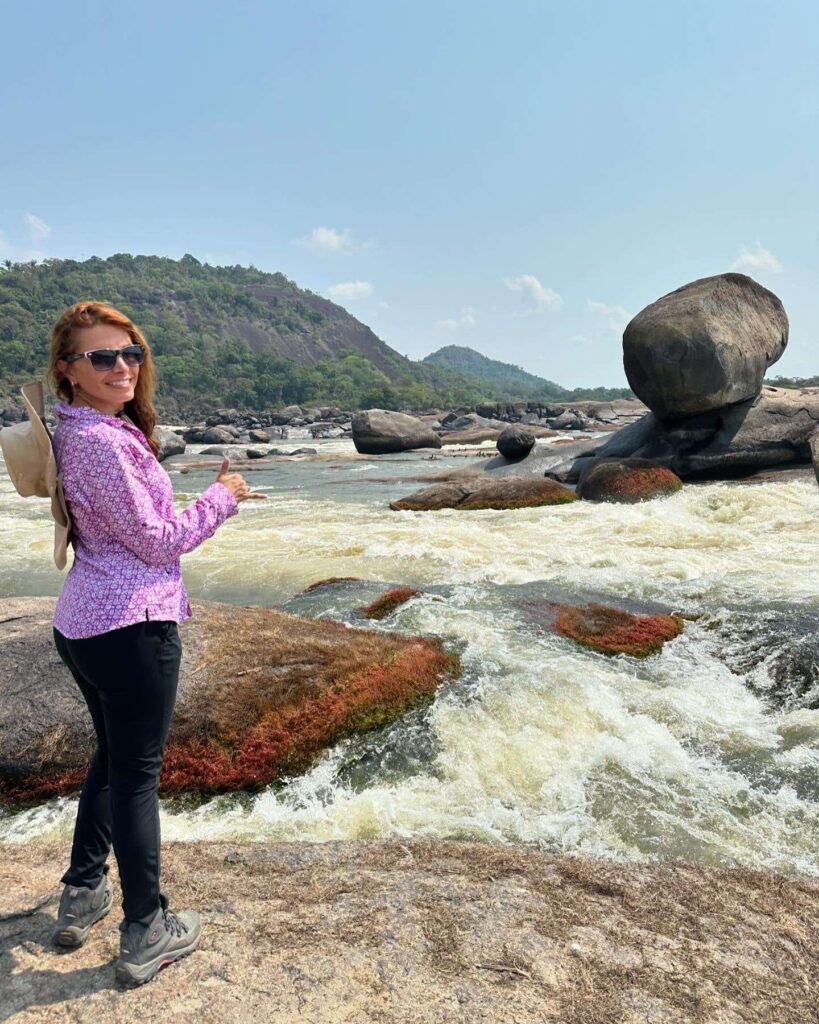In 2017, after over a decade of experience discussing various places and destinations worldwide, I discovered a Master’s Degree in Travel Journalism online. My excitement was as intense as the feeling I get when watching a waterfall cascade down a mountain or when I start to grasp the essence of a city I have always wanted to visit.
My interest was immense. I realized there were others like me who were passionate about purposeful travel. I identified with those who took this pursuit so seriously that they dedicated countless hours to learning, aiming to educate a population increasingly eager to explore the world and have meaningful experiences.
But life wasn’t finished rewarding me with academic support to bolster my extensive experience in presenting travel and tourism documentaries. A few months after completing the Master’s program, I felt confident and approached the managers of the station where I had been working for six years. I had been contributing two weekly segments, each lasting no more than three minutes, chronicling my travels. With more arguments and confidence, I pitched the idea of creating a unique and pioneering travel and tourism show on Colombian radio. And guess what? I succeeded. I secured a one-hour slot for an exclusive program dedicated to travel and tourism.
After hosting the radio show for five years, a new challenge and opportunity emerged in my life: becoming a teacher at the School of Travel Journalism to teach the Introduction to Travel Journalism module. This role meant I would be sharing my experience and knowledge with fellow enthusiasts who, like me, are passionate about telling travel stories.
“Don’t tell me you need to study to describe a place…”
Not only is it necessary, but it is the responsibility of those who have the ability to communicate what a destination needs to be recognized. It’s about inspiring others to explore those routes, sharing the stories of people who are fundamental to those destinations, among other reasons.
“It doesn’t seem that important. I can just take my cell phone camera, go on vacation, talk about my experiences, and mention what I liked and disliked about a place…”
It may sound simple, but travel journalism is much more complex. It’s not about just taking a camera and recording your vacation. It’s about setting a goal, conducting thorough research, and preparing for the trip with a clear theme in mind. It’s about engaging with the locals, understanding their needs, learning their stories, and valuing them as your own. It’s not just about you in a beautiful place; it’s about how your actions can inspire others to preserve or even enhance that paradise.
“Well, that sounds like it requires a lot of time and effort, and I want to do this for fun…”
I have fun doing what I do, and I love it. My motivation is to make a difference for someone else, for a community. Part of my happiness comes from knowing that my work contributes to society and supports an industry that drives a significant part of the global economy.
“Very poetic, but you’re hitting on exactly what I’m interested in. You mentioned economics, and I know travel can be a very profitable business. In fact, I could make money by selling my opinions to the highest bidder…”
But how credible is someone who sells their voice to the highest bidder? Sure, you can profit in the short term, but that approach has a very limited shelf life. Instead, focus on building a reputation, earning respect in the industry, and being recognized for the quality of your work. Establishing your sharpness and honesty in communication may take time, but it’s a long-term strategy. This approach leads to growing appreciation for your work and enduring results.
“Always curious, always learning”
Maritza Mantilla
“You talk as if travel journalists were exceptional characters…”
A travel journalist is developed through time, experience, and the practical application of knowledge. A travel journalist adapts, evolves, and remains flexible. They know how to read situations and develop sensitivities that enable them to tell stories in a way that captivates and attracts others. Indeed, they are special.
“How will I be able to identify when I meet one of them?”
You will find them working in places where others are simply having fun. They never stop creating and have no limits. They are tireless and highly responsible, with travel embedded in their DNA. You’ll notice them restless the night before a trip, contemplating the best approach to the place they are about to visit. A camera or microphone becomes an extension of their bodies, and a notebook or voice notes on their cell phones serve as their best advisors when writing. They are always eager to learn and equally eager to teach.

